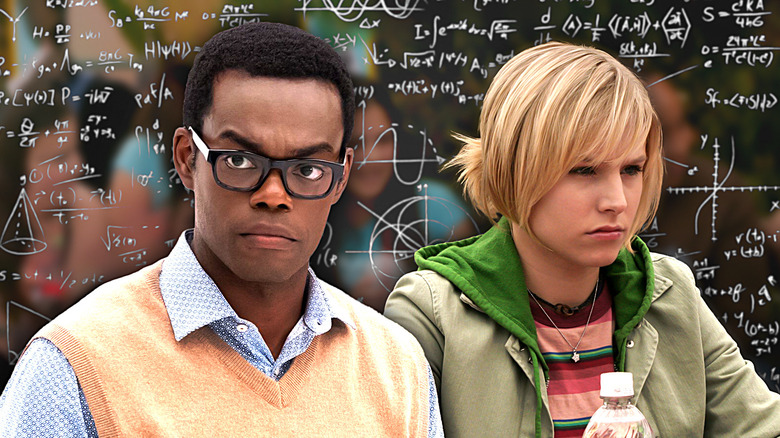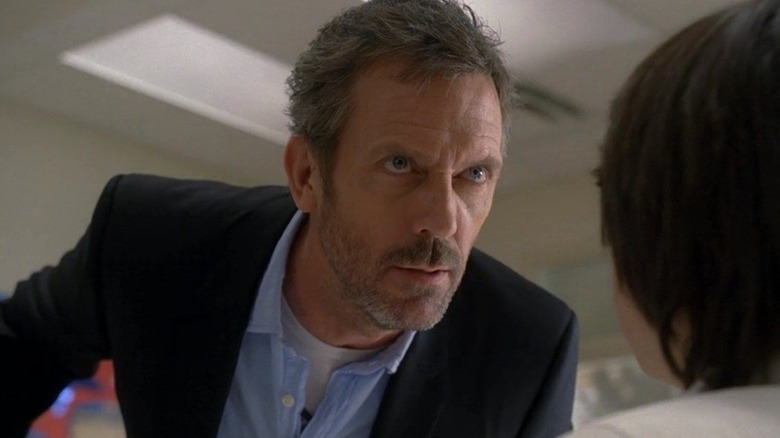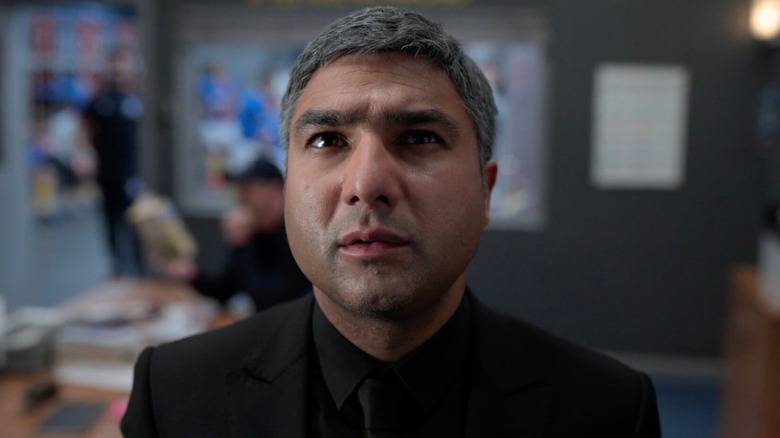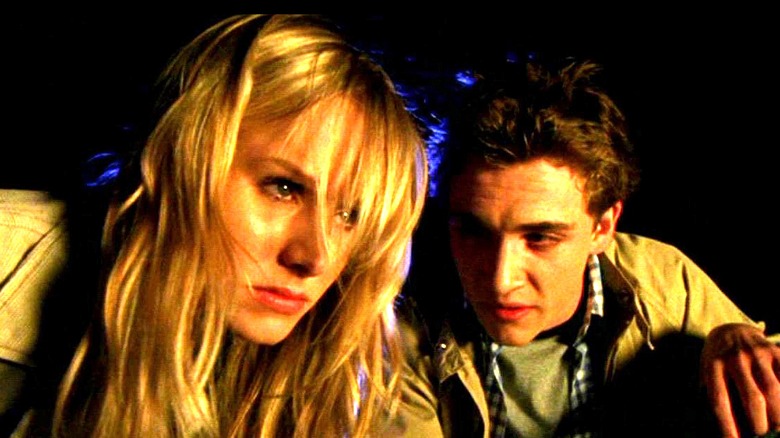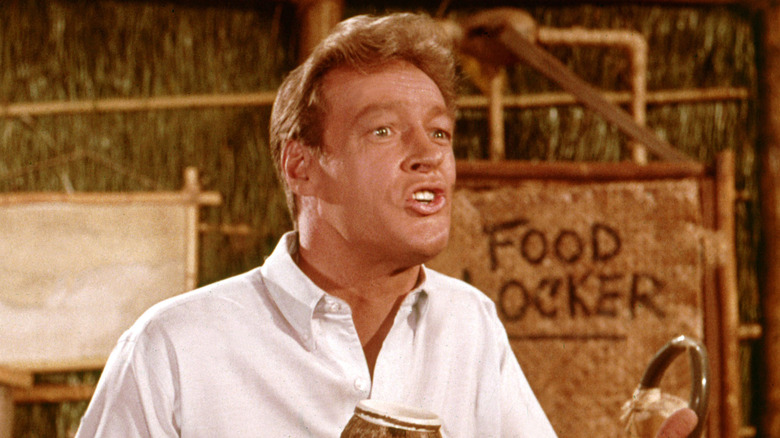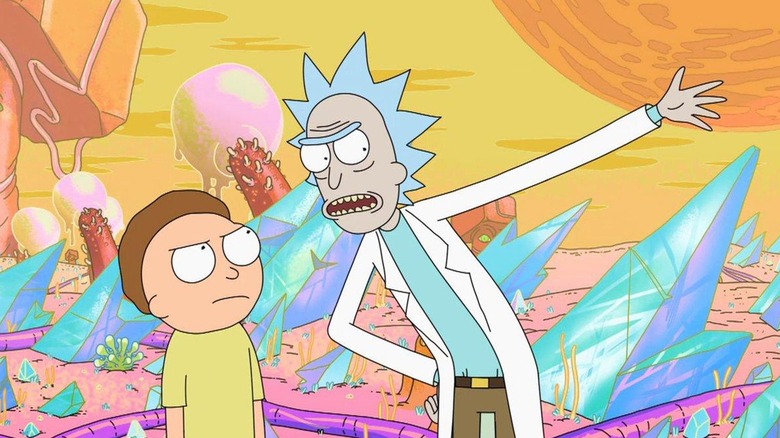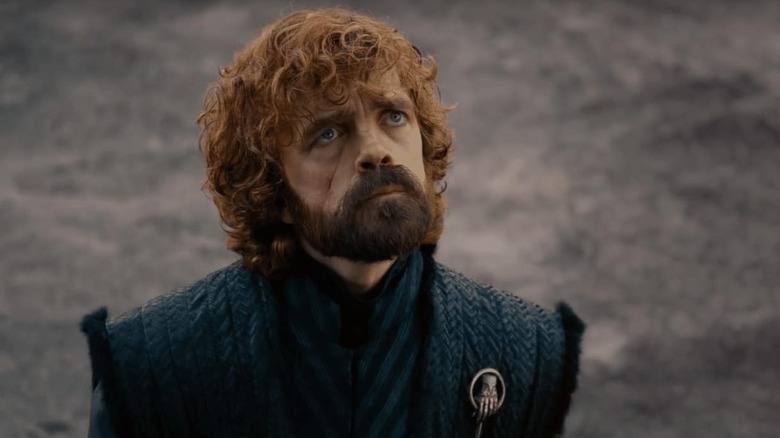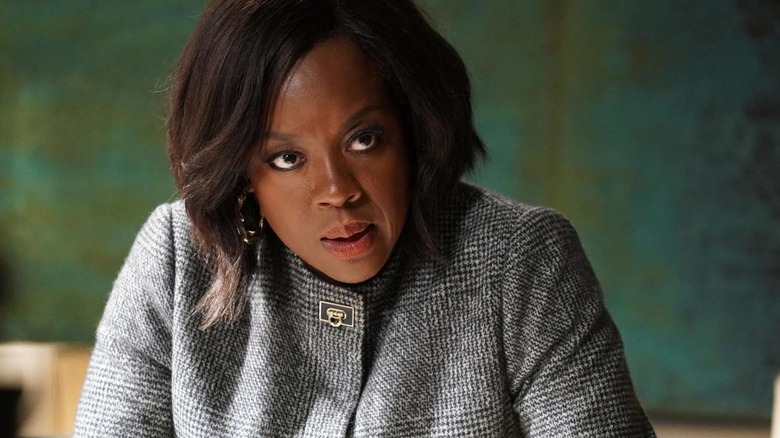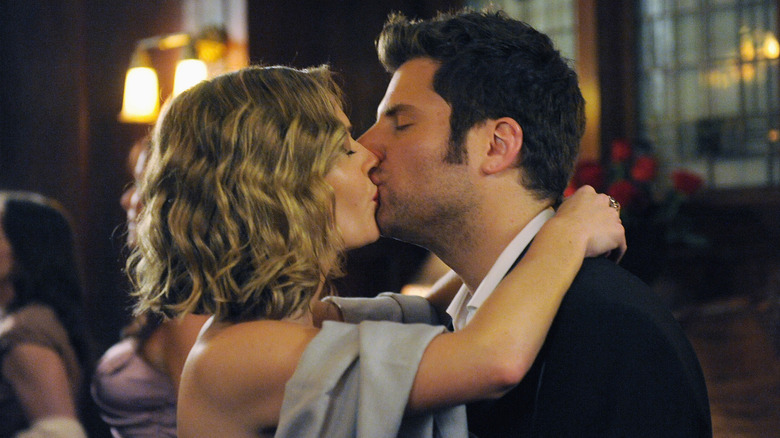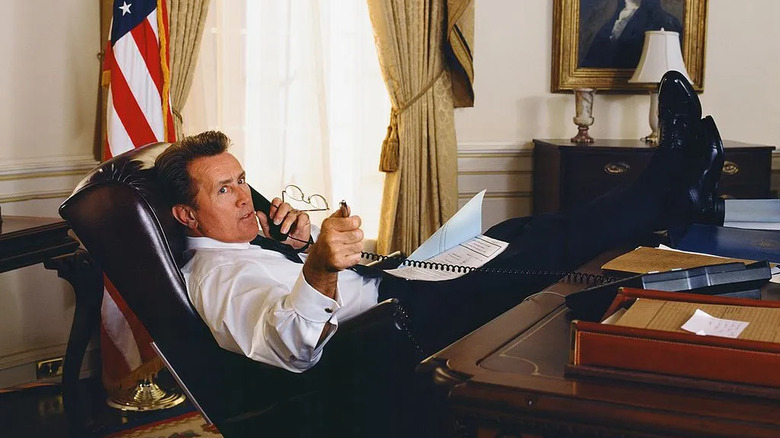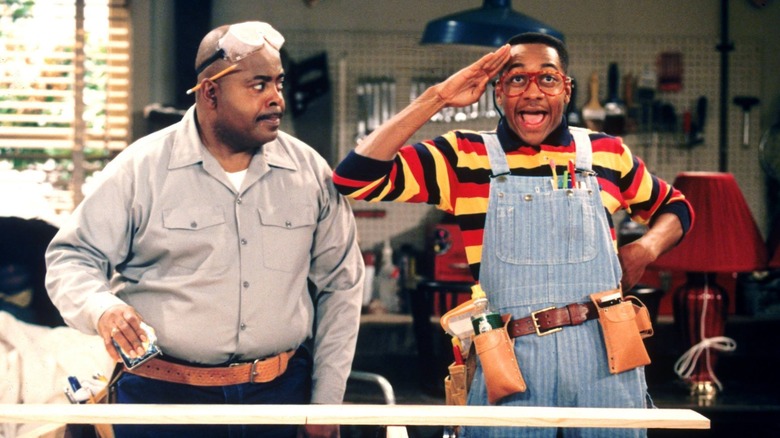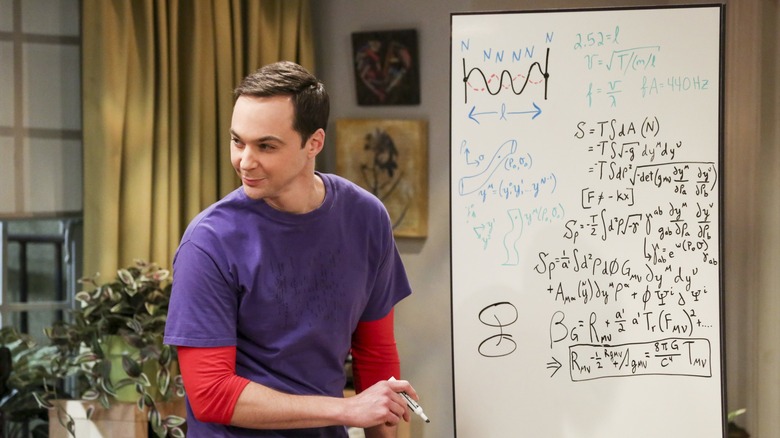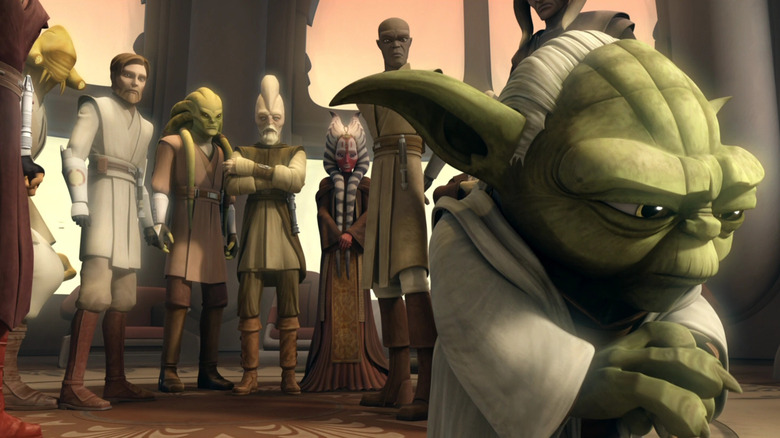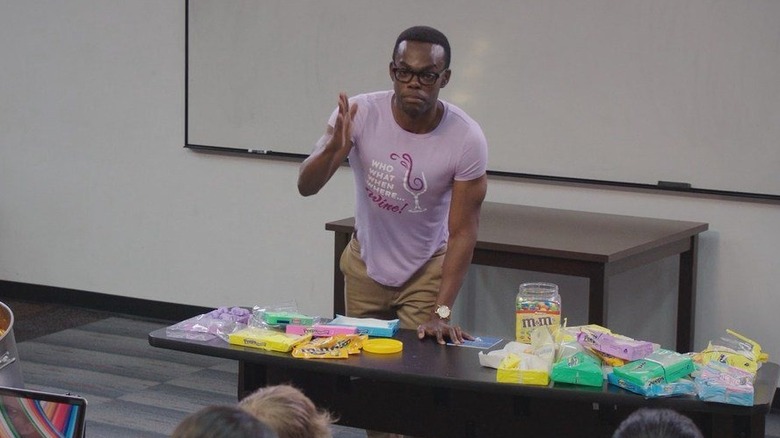Genius Characters That Made Really Dumb Decisions
There's a regular trope in television surrounding the mega-genius. Either the show entirely revolves around said genius (usually while he or she is solving crimes) or, in an ensemble of several figures, there's one character who is responsible for anything "brainy." There are certainly other genius archetypes — the wise counselor, the ambitious prodigy, the hyper-focused specialist etc. — but one thing they all have in common, usually, is that they're right more often than they're wrong. Or at least that's how they're perceived by the other characters and within the reality of the show itself.
It's not particularly notable when a mathematical genius can't quite put into words an adequate analysis of the symbolism in "The Great Gatsby," so it's important to note that the mistakes these characters have made are ones that they ought to have caught before making them — either because it was a mistake in a field where they're particularly accomplished, a mistake of common sense that they should be expected to understand, or because they were warned beforehand about the potential consequences of their actions. Most of the time, the mistakes these genius characters make are a result of their fatal flaw, and you might be surprised what some of those actually turn out to be.
House re-arms a dangerous man
Any list of TV geniuses would be incomplete without at least a facsimile of Sherlock Holmes. Of the many that are on and have been on TV, one of the most popular during its run had to be Hugh Laurie's Doctor Gregory House from the show "House." Laurie's caustic, charming-against-all-odds performance as a brilliant diagnostician put him on the map in America and quickly rooted the character's personality in the minds of viewers.
In Season 5, Episode 9, "Last Resort," a lone gunman takes House, Thirteen (Olivia Wilde), several patients, and a few other hospital personnel hostage in Cuddy's (Lisa Edelstein) office. The man, named Jason (Željko Ivanek), has been very sick for a while, and he's holding hostages in order to get treatment from the best doctor in the hospital. House is delighted, as always, at the chance to solve another medical mystery, and his thirst for another puzzle leads him to a point where he actually returns the gun to Jason after giving him an MRI.
As a result of House's cooperation with the gunman, the conflict reaches a point where Thirteen very nearly injects herself with a drug that will almost certainly kill her. It's not unreasonable to assume that anyone who chooses to be a doctor — someone who heals — would value life above all else. For House, that's not the case, and it's his fatal flaw. Or it would be, if he cared about the consequences of his actions.
Ted Lasso's Nate betrays his biggest champion
Nate's (Nick Mohammed) defection to the dark side (aka Rupert's newly purchased football club) on "Ted Lasso" may at first seem like it only comes on a bit suddenly, but it's actually something that's foreshadowed as early as Season 1. Nate has very low self-confidence when he meets Ted (Jason Sudeikis), and it is only due to his energetic and salient support that Nate is able to present his true genius as a football strategist.
A part of the confidence that Nate builds in Season 1, though, comes with a chip on his shoulder. Viewers can see it at work in his verbal takedown of the team before one of their games (Season 1, Episode 7) and his sharp words to Rebecca (Hannah Waddingham) when he believes she's firing him (Season 1, Episode 10). Nate's attitude becomes more twisted as Season 2 goes on, showing both his jealousy that other people (especially Roy) are receiving Ted's support and the details of his relationship with his father — who is somehow both taciturn and judgmental.
Nate doesn't truly fall from grace until he decides to tell sports reporter Trent Crimm (James Lance) about Ted's recent panic attacks. Trent feels obligated as a journalist to report the news, but he also feels obligated as Ted's friend to tell him who leaked it. Ted, of course, doesn't hold it against him, but that just makes it even clearer to Nate that his betrayal was a mistake.
Veronica Mars overlooks Cassidy Casablancas
Veronica Mars (Kristen Bell) is a genius detective forced into her skills by circumstance. When Veronica is just a sophomore in high school, her best friend Lily is murdered, her father (then the county sheriff) loses his job in disgrace after accusing Lily's father of the crime, her boyfriend breaks up with her, her mom leaves both her and her father, and she is sexually assaulted at a party after being dosed with GHB.
Despite her serious trauma, Veronica is resilient and quite brilliant, though she has a smart mouth and a glib kind of stubbornness when she believes she's right about something. It is her bias in favor of the "underdog," though, that ultimately leads to her undoing in Season 2. After a horrific school bus crash kills many people, Veronica spends the whole year obsessing over who is responsible.
In "Veronica Mars" Season 2, Episode 22, "Not Pictured," Veronica realizes that Cassidy Casablancas (Kyle Gallner) is behind the bus crash, thanks to a Little League photo that says Cassidy is not pictured (it's a long story). Veronica vomits upon this discovery, determining that Cassidy is not only responsible for the crash but also for her sexual assault two years prior. Veronica was so blinded by Cassidy's meek presentation of himself that she actually interrogated and cleared him of her sexual assault in Season 1. Veronica eventually takes him down, but the traumatic damage is done.
The Professor doesn't protect his inventions on Gilligan's Island
"Gilligan's Island" is much older than all of the other shows on this list. It was a formulaic sitcom just like many other things on TV in the 1960s, but it did make waves by presenting such a strange premise. A group of people taking a scenic boat ride are stranded on an uninhabited island after a nasty storm wrecks their ship. One of the passengers, Professor Roy Hinkley (Russell Johnson), may actually be the most genius inventor on this list — if you set aside science.
Throughout the show's tenure, the Professor, using parts from the boat and materials from the island, engineers many unbelievable things, including a washing machine, a battery charger (made only of pennies, salt water, and coconuts!), a lie detector, and a hot air balloon. Some of these things — though not enough of them — are made in an effort to find a way off the island, though he never actually tries to repair the boat itself.
When the Professor is looking for a way off the island, though, he always omits what should be a crucial step in his process: restraining Gilligan (Bob Denver) so that the S.S. Minnow's first mate can't inadvertently sabotage his efforts. Almost every time there's a chance to get off the island it's ruined by Gilligan. How is someone who has spent his life doing academic research incapable of recognizing and addressing such a clear correlation between failures?
Rick and Morty's Rick ruins and abandons an entire universe
Rick of "Rick and Morty" is a scientific genius, but not so much an ethical guy. In Season 1, Episode 6, "Rick Potion #9," Morty discloses to Rick that he has a crush on a girl named Jessica and asks for a love potion so he can force her to love him. Rick easily makes him the serum, but when Morty uses it on Jessica the solution latches onto her flu virus and becomes airborne, causing everyone on the planet (except the family) to fall in love with him.
Rick tries to fix this with a few more serums but only makes it worse, causing people to become distorted animal/human hybrids, and after his third attempt he decides that the entire universe is compromised. He transports Morty and himself to a nearly identical parallel universe, where they can take up the lives of another Rick and Morty who recently perished.
It's horrifying how blasé Rick is about damning the entire population of Earth to a chaotic existence as horrific blobs of mixed animal DNA. What's more, he literally leaves his daughter and granddaughter on the planet as the only uninfected people on Earth. In Rick's mind, it's not a big deal because they can and will be replaced, but it would be a nightmare for someone more capable of guilt. We can only hope he'll stop devastating entire planets.
Tyrion squanders Dany's momentum on Game of Thrones
Tyrion Lannister (Peter Dinklage) was a "Game of Thrones" fan favorite from the start, one of the only characters both conscientious enough to understand the difference between right and wrong and brilliant enough to prevent that understanding from hindering his work as a player in the Great Game. He wasn't a psychopath like his father Tywin Lannister (Charles Dance), but also didn't adhere to black-and-white morality in a gray world, like Ned Stark (Sean Bean).
In Season 7, Daenerys Targaryen (Emilia Clarke) arrives at Dragonstone with thousands of well-trained Essos soldiers, all the Dothraki riders in Essos, support from Dorne, The Reach, and Yara Greyjoy, three full-grown dragons, and Tyrion as her Hand. By the time Tyrion's first military stratagem has concluded, Daenerys has lost all of her Westerosi allies, most of her fleet, Dorne's army, and the Tyrell's wealth and supplies. It's a massive failure and it's all Tyrion's fault.
If Tyrion had let Dany land Drogon directly at the Keep right away, as she and her allies wanted, countless lives could have been saved. There might have been collateral damage, but nothing that compares to the alternative losses, and Cersei (Lena Headey) wouldn't have had time to prepare. Tyrion gives some reasoning to Dany about the common people, but it's hard not to think that he wanted to avoid deep-frying his siblings. His unconditional love for his family, despite their terrible treatment of him, was and always will be his Achilles' heel.
How to Get Away with Murder's Annalise ignores important boundaries
Annalise Keating is one of the most interesting characters on our list of geniuses because she is a legendarily brilliant lawyer. Viola Davis worked with the writers on "How to Get Away with Murder" to develop her character because she wanted Annalise to be complex. A part of this complexity is certainly Annalise's inability to adhere to ethical and professional boundaries.
In Season 3 of "How to Get Away with Murder," the police arrest Annalise and test her blood alcohol content. They find that she is inebriated and thus in violation of her probation with the Bar Association. Annalise manages to keep her attorney's license, but she must go through Bar-mandated therapy with a psychiatrist named Isaac Roa (Jimmy Smits). Annalise enters into a very unethical relationship with Isaac after learning that he is a recovering heroin addict and that his daughter overdosed on his stash years prior.
Isaac soon admits in his session notes that Annalise is a trigger for him. Annalise involves Isaac in her many cases and learns more about his life. Sometimes she seems to see how she's negatively affecting his life and admonishes him about it, but she never cuts ties. Isaac eventually relapses and overdoses on heroin. While his grief over his daughter's death is Isaac's main source of pain, Annalise is still a trigger for him, and even though he survives his overdose he tells her they can never be in contact again.
Shawn from Psych lies to the love of his life (for years)
"Psych" is a pretty light-hearted show for the most part. Shawn Spencer (James Roday Rodriguez), raised by a father intent on honing his sharp mind and eidetic memory into the perfect investigative tool, is forced to tell the police that he is a psychic detective in order to keep from being arrested. After that, Shawn and his best friend and investigative partner, Gus (Dulé Hill), are regularly hired as consultants for the Santa Barbara Police Department (SBPD) on major cases. Shawn's life becomes near-perfect when he and SBPD Detective Juliet O'Hara (Maggie Lawson) finally begin dating in Season 5.
Most of the time when a main character is keeping a secret from their romantic partner or a close friend they seem a little conflicted about it; this isn't the case with Shawn, whose philosophy often aligns with the axiom, "if it ain't broke, don't fix it." Shawn dates Juliet for two years before she finds out he's not psychic, and he isn't the one to break the news.
Had Shawn chosen to tell Juliet his secret, it's likely that her reaction would not have been as painful as it was. Instead of a confession, Juliet figures it out via a clue hidden in Shawn's jacket pocket. As a result of this, Juliet feels betrayed, foolish, and heartbroken, and both she and Shawn go through a lot of heartache before she can forgive him.
The West Wing's President Bartlet denies asylum to a North Korean pianist
President Jed Bartlet (Martin Sheen) is a great man. He has the kind of mind that comes along once in a generation, and if it weren't for the savagery and selfishness that pervades American politics, he might be able to accomplish a lot more as president than he does. There are a lot of examples throughout the show of Bartlet's instincts and moral code failing to align with what is politically savvy. Sometimes he chooses to push through the muck and hold on to his convictions for dear life, but sometimes the political reality prevents him from doing so.
In Season 5, Episode 4, "Han," a touring musician comes to the White House and meets the president. This particular musician, Jai Yung Ahn (Tony Lee), is an intensely gifted piano player from North Korea, and he is accompanied by a North Korean military escort. Ahn is able to secure a few moments alone at the piano with President Bartlet and secretly requests asylum so that he does not have to return to North Korea.
Bartlet's instincts tell him to fulfill the request, but his advisers ask that he deny Jai Yung Ahn to protect North Korea's attendance at upcoming talks regarding nuclear weapon testing and non-proliferation. Bartlet reluctantly agrees to deny Ahn, who is devastated. Almost as soon as Jay Yung Ahn and his escorts have left, Bartlet learns that North Korea has pulled out of the talks anyway.
Family Matters' Urkel tests a physics contraption on Carl and himself
Steve Urkel (Jaleel White), one of the most memorable characters from the 1990s sitcom "Family Matters," is rather an oxymoron. He is a brilliant inventor — a genius when it comes to anything related to science or engineering. But Steve is also clumsy and corny and, most horrifically, quite careless.
In Season 7, Episode 1, "Little Big Guy," Steve moves in with the Winslows and begins excising materials from the house for his laboratory, which he wants to set up in the basement. Carl (Reginald VelJohnson) is initially furious because the basement is his private space, but Steve promises him large profits from his recent invention: the Urkel-squashilization chamber. Steve shows Carl, using a toothbrush, that the chamber can be used to shrink and expand the size of objects.
Steve tests this highly experimental and volatile invention on the kitchen counter without protection for himself or Carl, who would have no way of knowing that he could be in danger. The machine short-circuits and spews glowing goo, predictably shrinking Steve and Carl each to the size of a TV remote. Steve should know better than to turn on a nearly untested scientific device without taking precautions or should have perhaps brought the chamber to a real laboratory and won a Nobel Prize in physics, but that's not as much fun to watch.
Sheldon reads the whiteboard wrong on The Big Bang Theory
Sheldon Cooper (Jim Parsons) is the smartest person among a group of very smart people on "The Big Bang Theory." He's also one of the most difficult people to be around because he has willfully cultivated a reputation for never being wrong, and his arrogance leads to many issues for him with his friends and his romantic partner, Amy (Mayim Bialik). Sheldon also commits some of his worst offenses against Penny (Kaley Cuoco) because she exists outside of the rest of the characters' intellectual hierarchy and therefore doesn't recognize its power dynamics.
It's not his treatment of others, though, from which he suffers the most consequences, but rather his rejection of their value. In Season 7, Episode 6, "The Romance Resonance," Sheldon is hard at work and realizes that he's made a breakthrough. He demands that Leonard (Johnny Galecki) witness his genius, and Leonard is awed, as Sheldon is the first person to ever synthesize a stable new super-heavy element.
Sheldon is overjoyed and on the brink of professional glory when he realizes that he used an incorrect measurement, thus nullifying his accomplishment. It's a simple mistake, and the real mistake he's made has been in denying that he could benefit from help from others. Academics and researchers depend on peer review for the substantiation of their work, but Sheldon doesn't ask anyone to check his work, because he doesn't believe himself capable of a mistake.
Yoda ignores warnings from the Force on The Clone Wars
Many "Star Wars" fans had a lot of questions about the period between "Star Wars Episode II: Attack of the Clones" and "Star Wars Episode III: Revenge of the Sith," so Lucasfilm's "The Clone Wars," an animated series covering that exact time in that universe, was a welcome addition to its canonical lore.
Master Yoda (voiced by Tom Kane) is one of many regular characters in the series. He is considered to be the wisest of the Jedi Order, and in an Order that prides itself on the importance of mental fortitude and harmony, he's a deeply respected figure. Yoda has a strong connection to the Force and often suggests its utilization. Why, then, does he mishandle its assistance so thoroughly?
The Jedi Order as a whole makes multiple missteps throughout this series and in the prequel films. Yoda's biggest mistake, though, is ignoring the Force visions he is granted in Season 6 that reveal the imminent rise of Darth Vader. It often doesn't work out well when people who see the future attempt to alter the course of events, but why else would the Force be granting Yoda these visions? We're not saying he needs to take extreme action, but maybe he could give a couple of people a heads up? Maybe he could investigate a few things? Instead of doing this, he witnesses the fall of the Jedi Order and exiles himself to a planet-sized swamp called Dagobah.
The Good Place's Chidi worries away his life on Earth
Chidi's (William Jackson Harper) mistake is pretty obvious because it's the main basis for his character arc throughout "The Good Place." He is a professor of moral philosophy and a darn good one at that. He proves himself a great teacher in multiple instances, and the ability to teach others is just as valuable a skill as any other. His genius, though, lies in his intuitive understanding of philosophy and thus an intuitive understanding of people. While it is a strength in many ways, his commitment to ethical fortitude has also caused him endless agony.
At the end of "The Good Place" Season 1, it's revealed that Chidi, Eleanor (Kristen Bell), Jason (Manny Jacinto), and Tahani (Jameela Jamil) are all subjects in a Bad Place experiment on psychological torture. It's in this moment that Chidi understands the mistake that led to his literal damnation. He spent so much time agonizing over every decision — terrified of the unforeseen consequences of his actions — that he ended up spreading his misery to the people around him as well.
Chidi's mistake doesn't lie in his relentless pursuit of the right answer so much as it does in his failure to learn from the mistakes of his predecessors. His philosophical hero, Immanuel Kant, had a similarly insatiable desire to find the right answer as well as a similar misery in allowing that desire to engulf his entire life.
If you or anyone you know needs help with addiction issues, or may be the victim of sexual assault, contact the relevant resources below:
- Visit the Substance Abuse and Mental Health Services Administration website or contact SAMHSA's National Helpline at 1-800-662-HELP (4357).
- Visit the Rape, Abuse & Incest National Network website or contact RAINN's National Helpline at 1-800-656-HOPE (4673).
